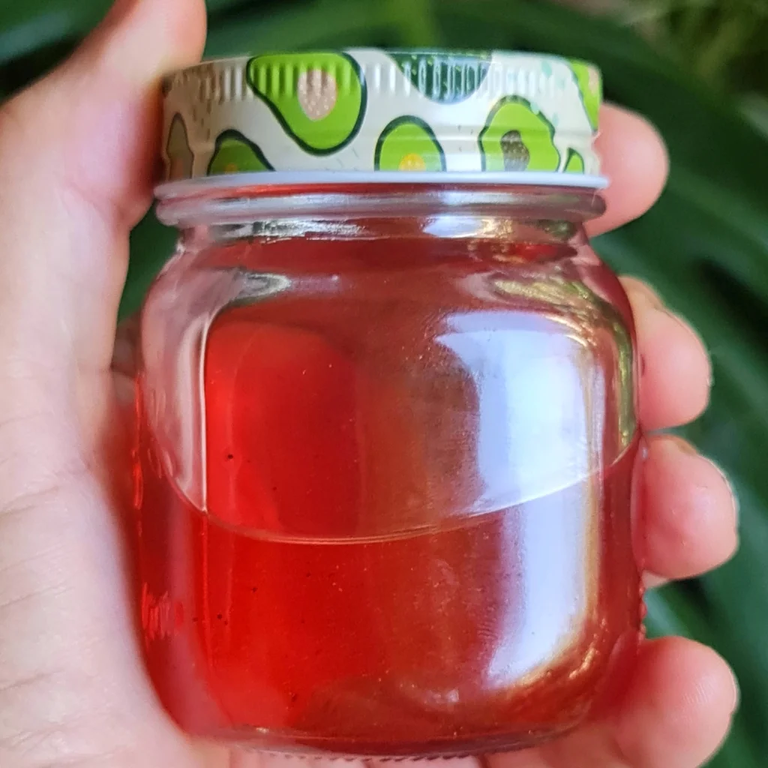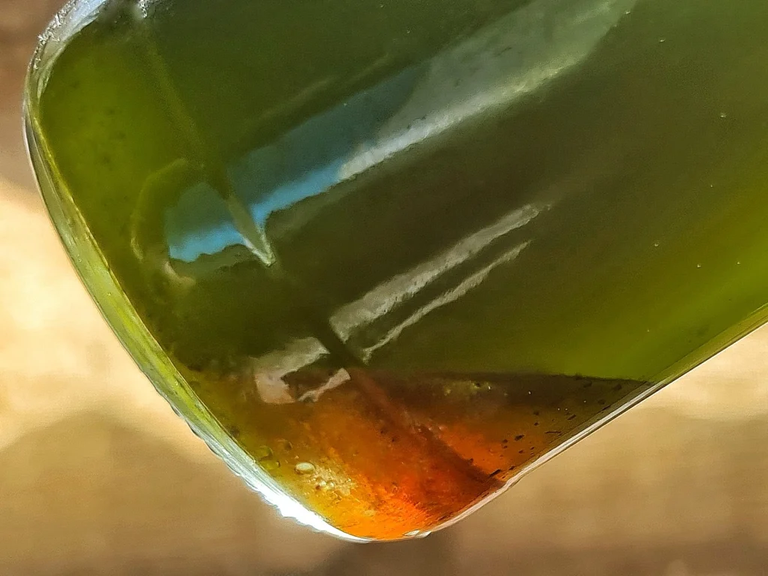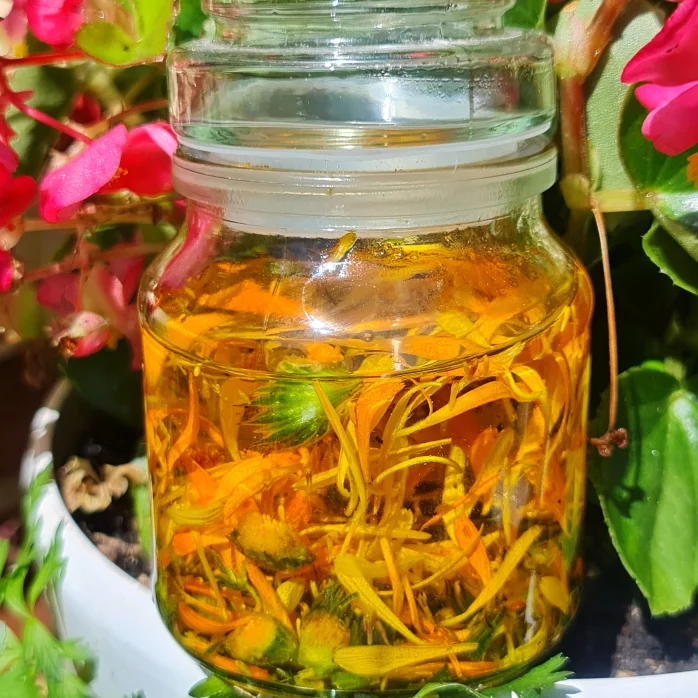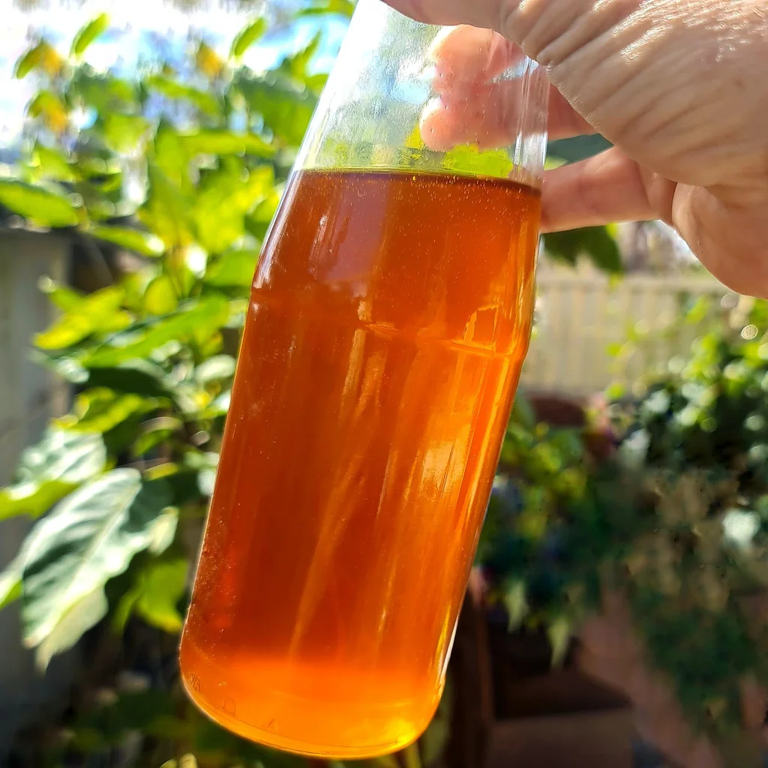Oil is a useful way to extract the properties of some herbs. It is gentle, non-alcoholic and well suited to external applications. It is also very, very simple to make.

Fixed or volatile?
There are two broad categories of oils that we're interested in as herbalists. Fixed oils are the ones we use in everyday herbalism, they are liquid at room temperature and pretty stable. Volatile oils are also called 'essential oils. They're, as their name suggests volatile and evaporate easily. They are also very concentrated (the 'essential' part).
Oil soluble
If you’ve read out tincturing and teas and infusions pages, you will already know that different compounds are soluble in different solvents. There are some that can be extracted from herbs through the magic of alcohol, some that do best in water and perhaps, not surprisingly, some that are soluble in oils.
As a rough guide to thinking about what herbal constituents are best extracted in oil, think oily. Oils such as the wonderful red oil from St. John’s Wort flowers are extractable in both oil and alcohol, essential fatty acids come out nicely in oil. Also think about what your application is and what other herbs you’ve heard of being used in the same way – Cayenne oil for aches and pains, Calendula oil for bruises and infections, Oregano oil for practically any infection. It looks like the herbs that comprise many of our kitchen spices are eminently oil soluble. That’s because they contain aromatic and essential oils and oils love other oils.
Hydrophobic, lipophilic
There are lots of terms in chemistry. To keep the terminology simple when dealing with oils, think of phobias. Something that ends with ‘phobic’ means hating that thing. On the other hand, something that ends with ‘philic’ loves it.
‘Hydro’, of course relates to water, ‘lipo’ relates to oils and fats. Combining these paragraphs, ‘hydrophobic’ means water fearing. ‘Lipophilic’ means oil loving. In general, hydrophilic (water loving) things are lipophobic (oil hating).
Some molecules, though are a bit of both. Our cell membranes are made of molecules with both a hydrophobic head and a hydrophilic tail, so they all align in the same way.
Oil is more buoyant than water and will float on top of it. If some water remains in the oil you are making, you will see it at the bottom of the container as it separates.

Emulsifiers
Emulsifiers are compounds that allow water and oil to mix. They are used often in the manufacture of soaps, creams and lotions where medicinal compounds need to be incorporated into an oily base. Most of these specialist chemicals have a water loving and an oil loving end. The water soluble molecule can attach to the water loving end and the oil loving molecule can attach to the oil loving end, giving us the best of both worlds.
Oils ain’t oils, Sal
I’m showing my age with that tag line from a 1970s car lubricant ad but the message is still very appropriate. Hopefully though, you’re not thing of using automotive lubricants for your herbal remedies! Here’s a link to a Youtube upload of one the old ads.
Different plant oils are more suitable to different applications and its all about penetration. Some oils will just sit on the skin for ages after being applied, some zip straight in. Olive oil is an easy to find example of the first. The thick, oily nature that makes it loved by cooks is what makes it suitable for remedies where the constituents must stay on the skin to protect and heal. Jojoba oil has a great affinity for our skin and penetrates easily, making it a one of the best carrier oils that ship other compounds through the barrier of our skin and carry them to where they are needed.
Jojoba oil is pretty expensive and I substitute it with far more accessible and affordable Grapeseed Oil. Grapeseed oil will absorb lots of beneficial compounds with ease and penetrates the skin quickly. It’s great for when you don’t want an oily patch on your skin.

Cold pressed?
Besides price, there are differences between cold pressed and hot pressed oils. Cold pressed extra virgin Olive oil contains a lot of its own aromatic compounds and other chemicals that come out easily in the pressing. That’s good for taste and cooking but not so good for herbalism because those compounds block the extraction of some of the compounds that we want from our herbs. It’ll take a book on chemistry to explain it all.
Hexane
Hexane is a solvent use in the cleaning and automotive industries. It is also used to extract oils from some seeds and other plant materials. It isn’t listed as carcinogenic to humans but inhalation of it can cause nerve damage, nausea and lots of symptoms similar to drunkenness. Would you want that in your herbal oils – probably not.
Cheaper oils and Rice Bran oil in particular use Hexane in their production process.
Types of oils and their benefits
Grapeseed Oil (Vitis vinifera) – light and slightly astringent, absorbs well and non-greasy. My favourite for when the herb has to penetrate.
Olive Oil (Olea europaea) – slow to absorb, richin squalene, extra virgin olive oil is high in natural antioxidants, useful for normal or weathered skin types. My favourite fn general.
Rice Bran Oil (Oryza sativa) – especially good for dry or mature skin, contains squalene. My favourite for older people.
Sunflower Oil (Helianthus annuus) – especially helpful for broken easily irritated skin, eczema, dry skin in general
Almond Oil, Sweet (Prunus amygdalus dulcis) – for normal dry skin, protects damaged skin, helps relieve itching, rich in vitamin E
Avocado Oil (Persea gratissima) – rich and moisturizing,full of vitamins & carotenoids, slower absorb. Repairs damaged skin. Can be helpful for eczema dry skin
Hemp Seed Oil (Cannabis indica) - rich in essential fatty acids, moisturizes and balances many skin types, may help eczema, dermatitis, psoriasis or general damaged skin
Jojoba Oil (Simmondsia chinensis) – a liquid wax similar our skin’s sebum, balances and regenerates all types of skin. Has a long shelf life.
Fractionated Coconut Oil (Caprylic/Capric triglyceride) – a short chain acid from Coconut oil that absorbs quickly into the skin.
Pumpkin Seed Oil (Cucurbita pepo) - rich in essential fatty acids, vitamins and mineral. Balances and moisturizes all skin types

Some of you may have seen that I've been writing a series of posts about making herbal remedies at home. I want to share what I know of this topic so that, as the world gets crazier, folks will have other avenues of medical care, namely those of themselves and their community. If you look back over this blog, you can see heaps of info on the topic, plus loads and loads of posts on herbs and using Australian bushfoods from a white perspective. If you haven't been around on in the @hivegarden and @naturalmedicine communities for long, you may be interested in looking back. There's w-a-a-a-a-y too much there for me to repost and the Hive system doesn't let you vote on old posts so, if you're happy with what you find, I believe that there is now a tip option...







